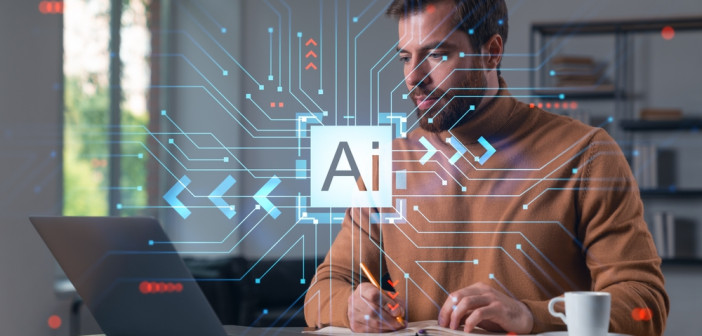For at least 50 years, we have watched movies and read stories about robots and automation taking our jobs. Tensions between humans and robots eventually escalate, a war erupts and becomes devastating for humanity. With robots’ superior weapons and technology, our chances to reclaim freedom are slim. Ultimately, the robots emerge victorious. They decide that the best action is to eliminate survivors and create a world free from the failings and flaws of human nature. We don’t need jobs at this point because our days are numbered.
The thing is, there have been a number of technology predictions, like driverless cars, moon bases and paperless offices, that didn’t come true. So all is not as it seems, and there are jobs that will not disappear. Professions that require complex decision-making, creativity and empathy are difficult to replace by machines. Teachers, artists and spiritual leaders are such roles that I believe are exclusively within the realm of human ability, and they can choose whether to use AI to enhance and augment their work.
Teachers
A teacher-student relationship is much more than imparting knowledge. A primary responsibility of the teacher is to establish an inclusive classroom culture that supports values such as honesty, responsibility, empathy and teamwork. It is a safe and inclusive space where students feel respected, valued and supported to develop their full social, emotional and academic potential.
To this end, artificial intelligence can be a helpful tool in promoting inclusivity in the classroom. For example, AI-powered translation tools can help teachers communicate with students who speak different languages, ensuring they feel understood and valued. Additionally, AI can help educators identify biases in language, visuals and messaging so that all students feel included, regardless of background, culture, race and gender.
While AI can contribute to establishing a positive classroom culture, I find that it lacks the qualities required to create a space that is safe and supportive of all students. Some of the qualities that help achieve this goal and only humans have are cultural competence, empathy, intuition and the ability to make judgments based on the emotions of others.
Artists
Art is said to be a meta-world of creativity, imagination and exploration that exists beyond physical reality. Art invites us to explore new perspectives, challenges our preconceptions and assumptions, and enables us to experience aesthetics and beauty.
Building upon the creativity and imagination inherent in the world of art creation, AI can provide artists with new tools to enhance their artistic expression. Through AI-powered applications and techniques, artists can experiment with new ways of creating art and expand their artistic vision, ultimately leading to a more diverse creative output. AI tools may suggest unconventional brush strokes or color palettes, for example, or encourage artists to experiment and break out of their usual patterns. Additionally, AI is available to help with tasks like image editing or color correction, thus enabling artists to focus their attention on more imaginative aspects of their work.
While AI can help augment the creative process, artistic work is a reflection of the human experience, the contradictions that exist within us, the complexity and depth of human relationships and the range of emotions that conflict and interact with each other. Art is powerful and impactful because it is human. It is this deep understanding of human nature that is unique to us and that AI lacks.
Spiritual Figures
Spirituality is part of the fabric of humans, and it has been so for millennia. It provides people with guidance, purpose and a sense of peace during times of loss, illness and stress. Enabling humans to navigate the questions and challenges that arise on their journeys, spiritual leaders provide emotional support, offer optimism and hope, and promote community and connection.
With spiritual leaders playing a crucial role in promoting a deeper sense of connection, AI can offer helpful means to enable them to better fulfill their role. One such means is the ability of AI to automate mundane tasks like record-keeping and scheduling, freeing up time for leaders to focus on fostering connections with their followers. Furthermore, AI-powered tools can analyze large amounts of data to provide insights into the spiritual needs of community members, enabling leaders to develop more effective approaches to meet those needs.
Despite the potential benefits of AI in supporting spiritual leaders, certain fundamental qualities such as empathy, moral agency, authenticity and wisdom are inherently human. The role of AI can thus be viewed as an augmentation to the abilities of spiritual leaders, rather than a substitution for their humanity.
Balancing AI Integration With Critical Human Elements
As professionals across industries explore ways to integrate AI into their work, approaching this process thoughtfully and ethically is key to ensuring the benefits of AI are realized while maintaining some critical human qualities. One key aspect to this end is to identify which tasks can be automated and which require human expertise. In the teaching industry, for example, tasks like recording-keeping or grading can be handled by AI, while building relationships and providing emotional support require human intervention. Likewise, ethical considerations could include ensuring that AI-powered tools are unbiased and do not perpetuate existing inequalities and gaps in educational opportunities.
Wrapping Up
From the portrait of Edmond de Belamy, which sold for $432,000 in 2018, to AI-powered tutoring platforms, which offer customized lessons and exercises, there are many fascinating examples of the creative potential of artificial intelligence. AI has made significant contributions to art, teaching and spiritual guidance and can greatly enhance the work of leaders in these industries. It is a powerful tool that is capable of performing tasks with consistency, accuracy, speed and efficiency that exceed human capability. Yet, machines lack the ability to feel emotions, conceptualize and convey subjective ideas, and communicate and connect compassionately and empathetically. In my opinion, advanced reasoning, feats of imagination and the ability to share the feelings of others are still the realms of human beings, making AI an assistant rather than a replacement for human practitioners.




